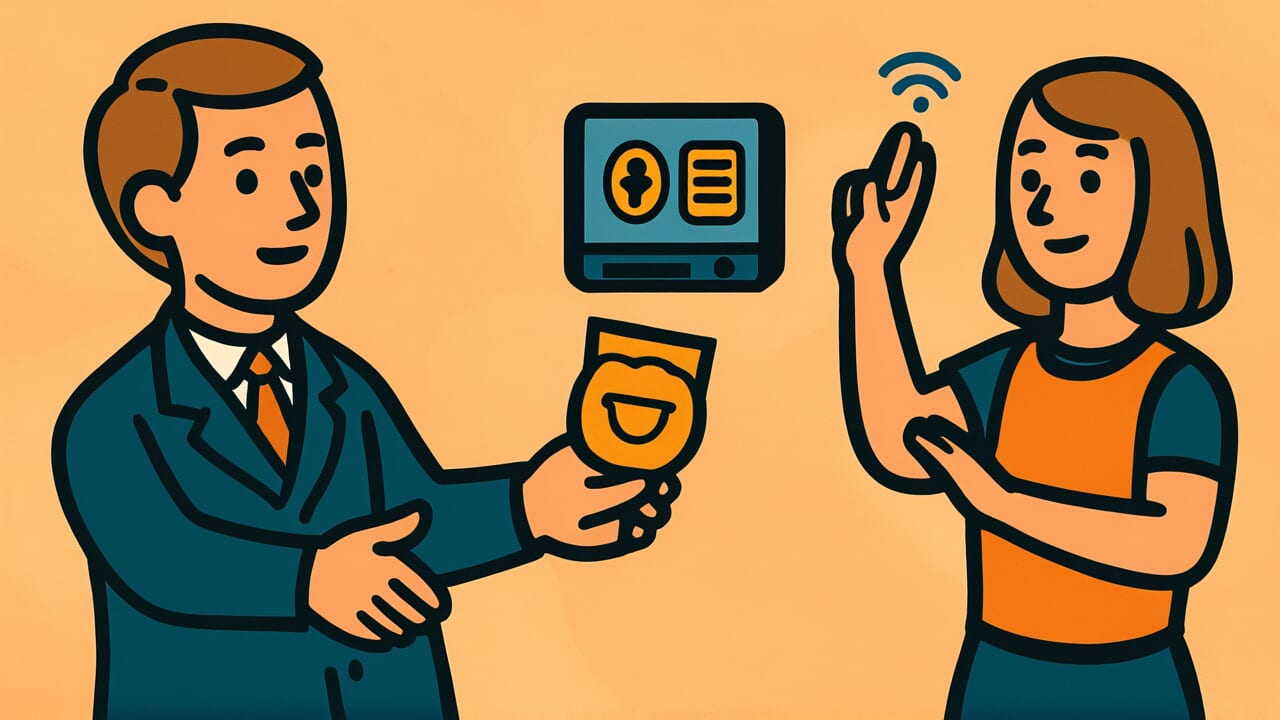How to Read “You don’t forget what you lent, but you forget what you borrowed”
Kashita mono wa wasurenu ga karita mono wa wasureru
Meaning of “You don’t forget what you lent, but you forget what you borrowed”
This proverb describes a bias in human psychology. People remember what they lent to others, but tend to forget what they borrowed.
When you lend money or items to someone, you remember it clearly. You wonder when it will come back. The fact of lending stays vivid in your memory.
But when you’re the borrower, things work differently. Once your urgent need is satisfied, you might postpone repayment. Sometimes you forget about it completely.
People use this expression to warn against lending troubles. It criticizes those who don’t return borrowed items. It also serves as self-reflection, reminding us to return what we borrowed.
This applies beyond money and objects in modern society. We remember the kindness we gave to others. But we easily forget the help we received.
Origin and Etymology
The exact first written record of this proverb is unclear. However, people widely used it during the Edo period among common folk.
Lending and borrowing has existed since human society began. It’s a universal practice. In Japan especially, people developed a culture of sharing everything with neighbors. This included tools, food, and money.
This proverb emerged from an interesting psychological phenomenon. It reveals the asymmetry of human memory. The lender keeps wondering, “When will I get it back?”
This expectation and anxiety keeps the memory fresh. Meanwhile, the borrower’s sense of obligation gradually fades. Once their immediate need is met, the urgency disappears.
Edo period merchants understood this human psychology well. The practice of keeping account books spread widely. It helped compensate for the vagueness of human memory.
This proverb passed down not just as a moral lesson. It served as practical wisdom for daily life. Ancestors wanted to teach future generations important principles. Keep records when lending or borrowing. Never forget to return what you borrowed.
They conveyed these lessons through simple, memorable words.
Usage Examples
- He seems to have completely forgotten about the book I lent him. This is exactly “You don’t forget what you lent, but you forget what you borrowed.”
- I tend to forget what I borrowed from others too. I’ll keep “You don’t forget what you lent, but you forget what you borrowed” in mind and be more careful.
Universal Wisdom
This proverb reveals a deep truth. Human memory is never fair. Our brains react sensitively to events where we might lose something.
We vividly remember when lent items don’t come back. This may relate to survival instinct. Vigilance about losing our resources is a defense mechanism. Humanity developed it throughout our long history.
We forget borrowed items easily because of how our memory works. It serves our convenience. At the moment of borrowing, we feel grateful. But as time passes, that memory gets buried in daily life.
The obligation to return something becomes a psychological burden. Our unconscious mind pushes it deep into the back of our memory.
This proverb has been passed down for hundreds of years. It endures because this human trait never changes across time. Technology may advance dramatically, but the human heart remains essentially the same.
Our ancestors saw through this biased memory mechanism. They continue to sound the alarm for us. Perhaps the wisdom to maintain smooth relationships lies in humility. We must acknowledge that our own memory cannot be trusted.
When AI Hears This
The human brain doesn’t treat gains and losses equally. Behavioral economics research shows something striking. The pain of losing 10,000 yen feels about 2.5 times stronger than the joy of gaining 10,000 yen.
This asymmetry creates the difference in lending and borrowing memories.
For the lender, giving away an item registers as a “loss” in the brain. Imagine lending 5,000 yen to a friend. That 5,000 yen disappears from your wallet as a powerful loss.
The borrower recognizes receiving 5,000 yen as a “gain.” But this gain memory doesn’t stay as strong as loss. The same 5,000 yen carries 2.5 times more weight in the lender’s brain. The borrower’s brain processes it lightly.
What’s more interesting is this. The borrower faces “repayment obligation,” a future loss. Yet the human brain prioritizes immediate gains. It discounts future losses. This is called temporal discounting.
At the moment of borrowing, you feel the benefit. But the pain of repayment lies ahead. So it fades from memory easily.
This cognitive distortion causes more than personal disputes. It underlies large-scale financial crises like the subprime mortgage problem. Borrowers underestimate future repayment risks. Only lenders vividly remember the losses.
This structure can trigger the collapse of entire systems.
Lessons for Today
This proverb teaches us something crucial today. We must recognize the imperfection of our own memory. When you lend something and the person doesn’t return it, consider this. They might genuinely have forgotten.
It’s not malice. The mechanism of human memory makes it happen.
At the same time, recognize yourself as someone who easily forgets what you borrowed. Be conscious about kindness and help you received. Keep records of borrowed items or money. Set reminders for yourself.
Your smartphone’s memo function and calendar apps are powerful tools. They compensate for our imperfect memory.
This proverb teaches a deeper lesson. Never forget gratitude. Returning borrowed items is natural. But there’s more. Keep the favors you received in your heart. Repay kindness when you have the chance.
This attitude builds the foundation for rich relationships. Hold humility about your conveniently biased memory. This makes you a more trustworthy person.



Comments